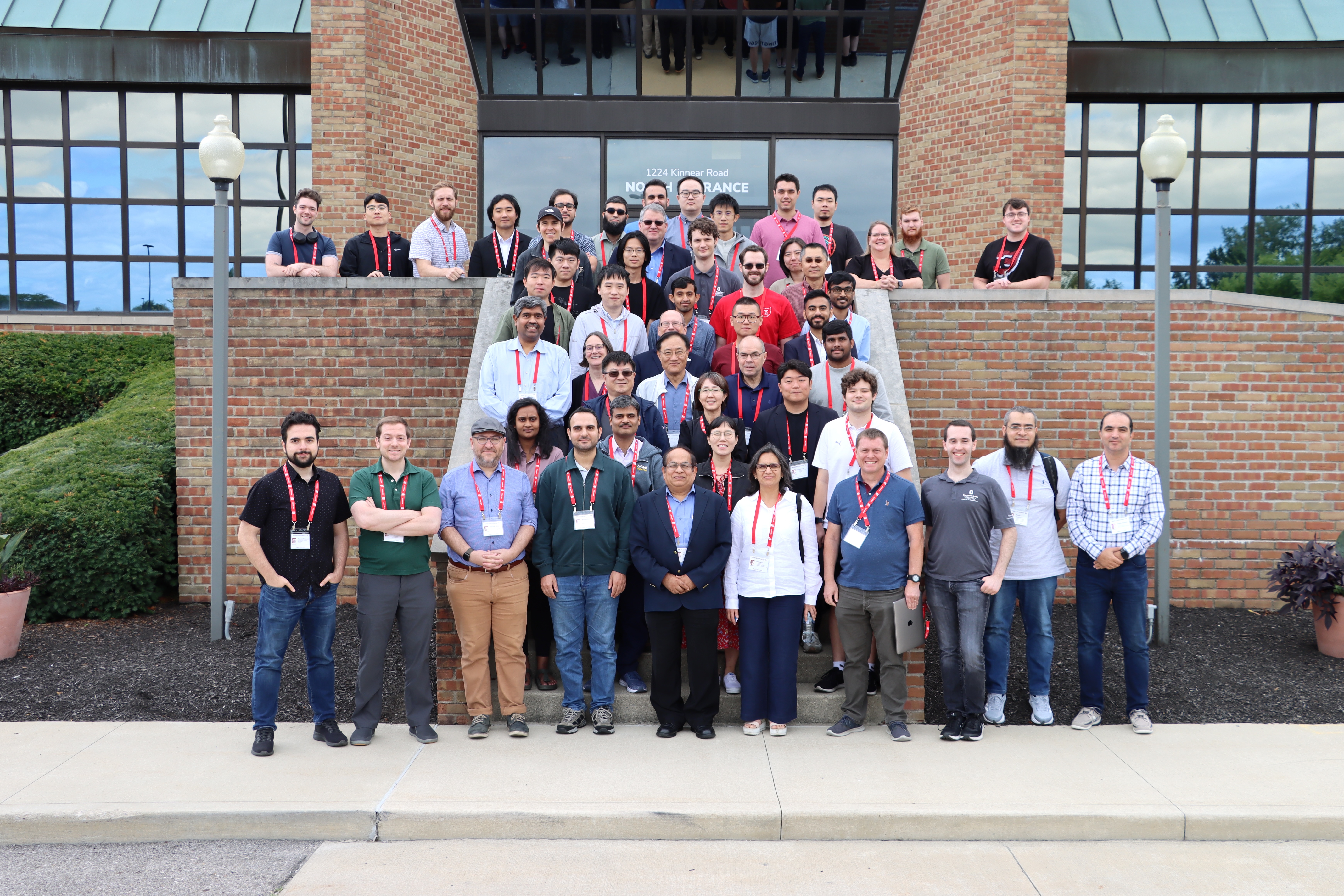Researchers, developers, system administrators, engineers, and students who share an interest in the MVAPICH open-source library for high performance computing (HPC) are gathering at the Ohio Supercomputer Center (OSC) Monday, Aug. 18, through Wednesday, Aug. 20, for the 13th meeting of the MVAPICH Users Group (MUG).
The Network-Based Computing Research Group led by Dhabaleswar K. “DK” Panda, a professor of computer science at The Ohio State University, developed and maintains the popular HPC system software package.
“This year’s conference will feature many presentations about HPC and artificial intelligence (AI), including a discussion of the future roadmap of the MVAPICH project as it relates to those topics,” Panda said. “We are pleased to welcome members of the global HPC community to Columbus this week for a robust exchange of information on critical topics in our field.”

Topics covered at the MUG conference include: High-performance MPI implementations over various networks and accelerators, communication offload, in-network computing, HPC network design in finance, performance tuning for HPC and AI applications, applications-level optimizations for HPC and AI on many platforms, MPI-based communication for deep learning, energy-efficient MPI, optimization of collective communication over CXL, ultra ethernet, high-throughput and scale-up ethernet, CXL-based memory pooling, high-performance inference, quantum accelerated HPC, and an overview of upcoming products for accelerating HPC and AI from various vendors.
Keynote speakers at the event are Dan Stanzione of the Texas Advanced Computing Center (TACC) and Manoj Wadekar of Meta.
The conference hosts seven tutorials and demos from Broadcom, Enfabrica, Keysight, Meta, NVIDIA, ParaTools, Ohio State, University of Oregon, and X-ScaleSolutions. The event also features 19 invited/contributed talks from several organizations: AMD, Broadcom, Center for Development of Advanced Computing (CDAC, India), Enfabrica, ETRI (South Korea), HPE, Jump Trading, KAUST (Saudi Arabia), Keysight, Konkuk University (South Korea), NSF, NVIDIA, ParaTools, San Diego Supercomputer Center, Ohio State, Technical University of Munchen (Germany), University of Oregon, University of Tennessee, Knoxville, and X-ScaleSolutions. Members of the MVAPICH and HiDL projects will provide nine short presentations.
In addition, a poster session will highlight 12 presentations from Florida State University, Northeastern University, San Diego State University, Ohio State, University of Maryland, University of Oregon, University of Texas, San Antonio, and University of California, San Diego.
Sponsors of this year’s event are OSC, Broadcom, Enfabrica, Keysight, NSF, NVIDIA, Ohio State, Paratools, and X-ScaleSolutions.
“OSC is excited to once again host and co-sponsor the MUG conference, as it allows us to provide a venue for important discussions about HPC technologies, innovations, and applications,” said Karen Tomko, OSC director of research software applications. “Conference attendees will have the opportunity to tour OSC’s data center at the State of Ohio Computer Center, where our HPC clusters are equipped with the MVAPICH library.”
The MVAPICH software is used by more than 3,450 organizations in 92 countries worldwide, and as of August 2025, more than 1.9 million downloads have occurred from the project's site. The software also is distributed by many vendors as part of their software distributions and powers several supercomputers in the TOP500 list of global supercomputing systems.
Visit the MUG conference website for more details about this year’s program.
The Ohio Supercomputer Center (OSC) addresses the rising computational demands of academic and industrial research communities by providing a robust shared infrastructure and proven expertise in advanced modeling, simulation and analysis. OSC empowers scientists with the services essential to making extraordinary discoveries and innovations, partners with businesses and industry to leverage computational science as a competitive force in the global knowledge economy and leads efforts to equip the workforce with the key technology skills required for 21st century jobs.